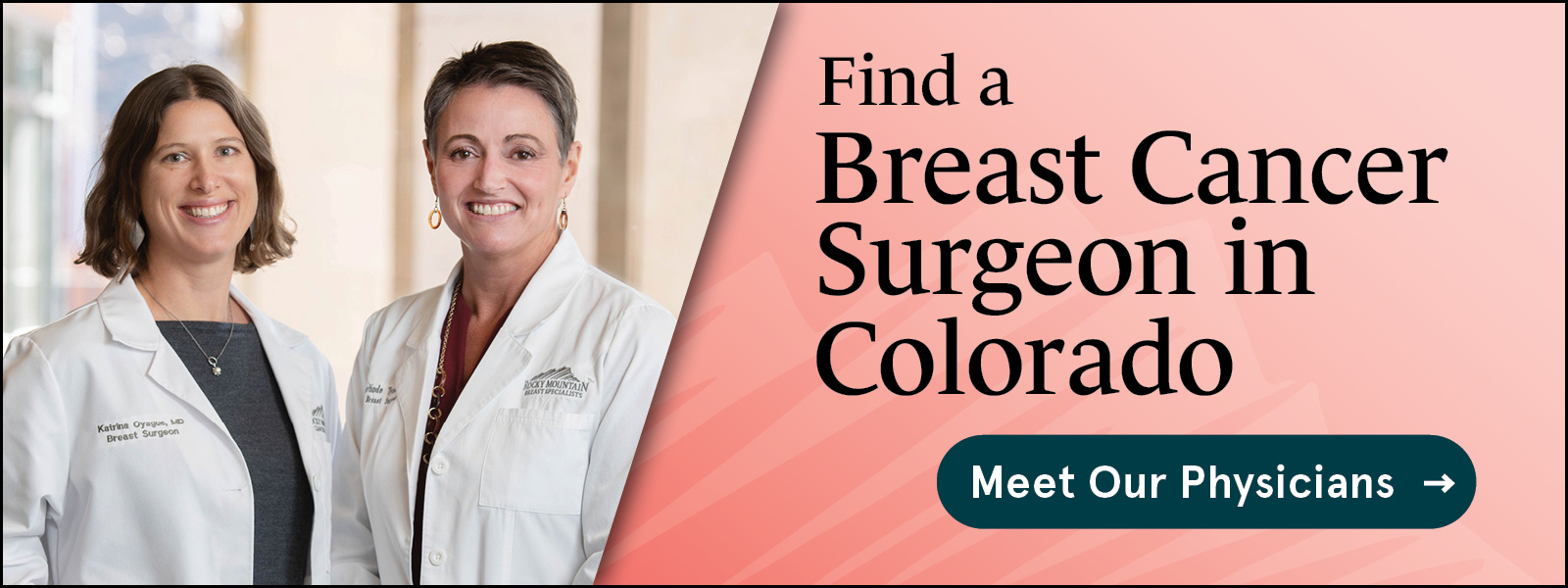Mental Health Support Was Key For This Breast Cancer Survivor
3 min read

For one Rocky Mountain Cancer Center patient undergoing treatment for highly aggressive breast cancer this year, the mental health support from the social work team made all the difference in her breast cancer treatment.
Loveland resident Lyn Cromar, 43, found a lump in her breast in fall 2019.
“I went to bed on Friday night with a normal breast tissue,” Lyn remembered. “Two nights later, on Sunday night, I found a bump the size of an atomic jawbreaker candy. In two days it went from nothing to that.”
After diagnostic mammograms and multiple biopsies, Lyn was diagnosed with HER2-positive breast cancer around Christmas 2019. Treatment for breast cancer started soon after.
She sees Dr. Sara Robinson, a breast cancer oncologist, and Dr. Gerlinde Tynan, a breast cancer surgeon at Rocky Mountain Breast Specialists (RMBS), a division of Rocky Mountain Cancer Centers (RMCC) located in Longmont, Colo. RMBS is renowned as a leader for breast cancer treatment in Colorado.
“Dr. Robinson is the closest thing to an angel in a lab coat I’ve ever met,” Lyn said. “I’ve rarely met a physician who is kind, personable and brilliant.”
After her diagnosis, it was a “whirlwind” getting ready for treatment to begin, said Lyn who underwent chemotherapy followed by radiation and a double mastectomy.
Lyn was well into her chemo treatments when the pandemic hit.
“That changed my cancer experience,” Lyn said. “I was so sick from the chemo; my treatments got shortened.”
Her doctors triaged her symptoms over the phone, symptoms that might have meant a hospitalization during pre-pandemic times.
“My immune system was so low, they couldn’t risk me being exposed to coronavirus,” Lyn said.
On top of it all, Lyn’s elementary school-aged daughter who has special needs was at home, schooling virtually. She began to lean on the social work team at RMCC for support.
“It was so beneficial,” she said. “It makes such a difference to have mental health support to ground you when the rest of the world is crumbling. I was on super lockdown, couldn’t go anywhere, and then with the global pandemic and civil unrest on top of it — it was a lot.”
The support Lyn received from Sharon Cascone, her oncology-trained social worker at RMCC, was “vital” to her success, she said.
“I didn’t have to explain what being diagnosed with cancer was like, or what cancer felt like,” she said. “I was working with a professional who had that experience. So we could start working on the complicated part — having cancer during a pandemic. It lifted me up and allowed me to continue to be strong when the fetal position would have been an appropriate response as well.”
Lyn describes their interactions as “therapeutic conversations.” She learned coping strategies for accepting her cancer diagnosis and how to look forward to the next day even when she was feeling at her lowest.
“To have someone to tell you tomorrow will be brighter, and not have it be a bunch of insincere clichés is really important,” she said.
One thing was certain; Lyn never second-guessed her decision to pursue treatment at RMCC.
“It’s always felt good to me,” she said. “When I was first diagnosed, I remember being in the lobby, seeing the logo and my eyes started to well up, realizing that cancer was now part of my story. Within two months of that first meeting, I couldn’t feel the lesion in my breast tissue anymore because the chemo had shrunk it. I was feeling miserable but after a while, I started to feel better in treatment than prior to treatment because the cancer was gone.”
As of late October, Lyn has no evidence of disease though she’ll continue treatment through March 2021. She’ll soon schedule her second reconstructive surgery.
“There are a lot of things to be grateful for — one of those things is knowing (Dr. Robinson and Dr. Tynan) are on my side; that really helped me on the days I was at the lowest I could go. All of the oncology nurses and support staff, even the people who deal with money, they are so kind and friendly. I’ve never felt so supported as a patient from the whole experience as an RMCC patient. And the social work component was a really big piece of that.”
Now Lyn is intent on getting the word out about how important mental health support is for cancer patients.
“I’m a silver living kind of gal. Even as optimistic as I am, knowing that there was mental health support available to me, was reassuring and a vital part of my cancer experience,” she said.

